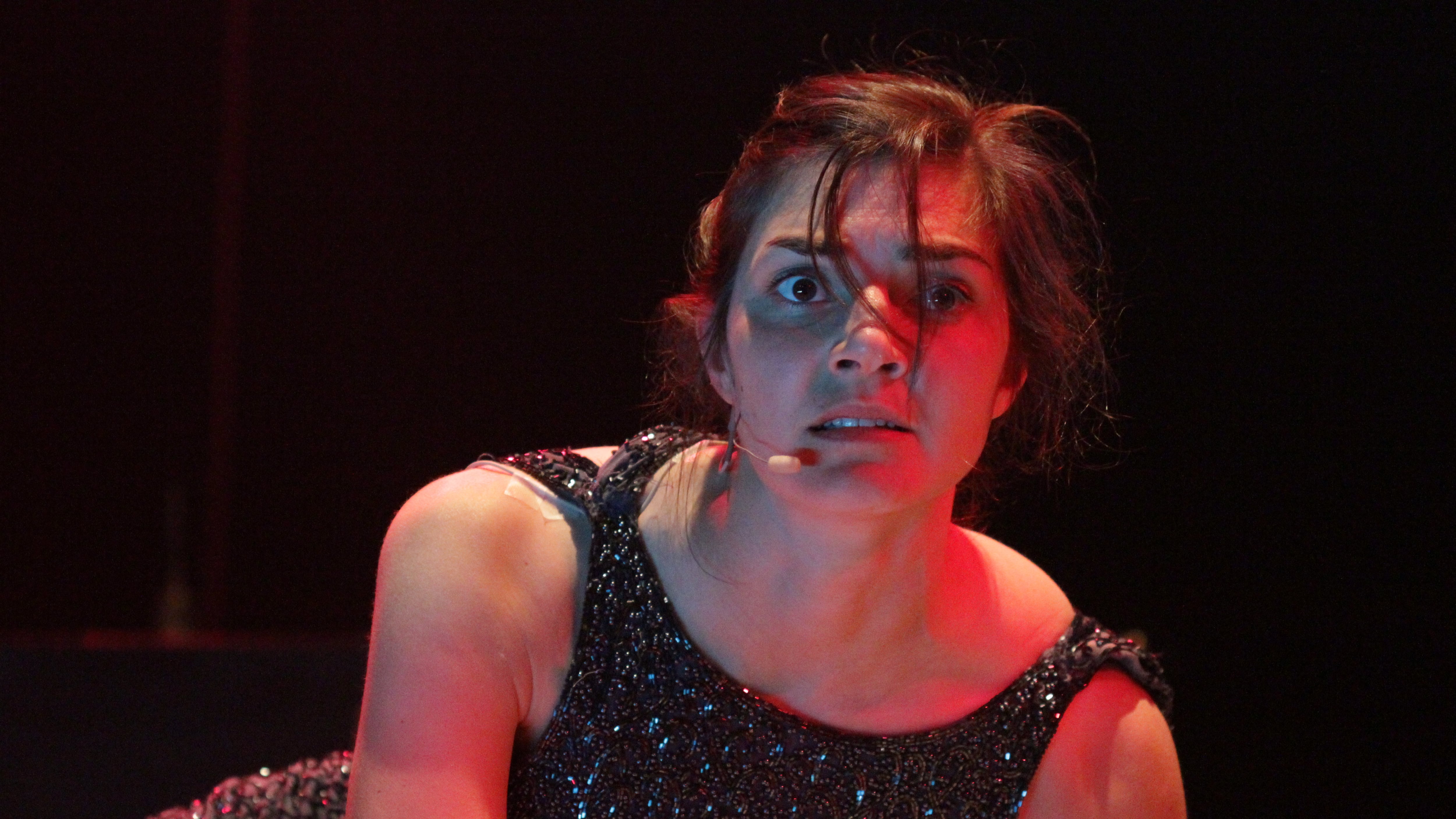Looking regal, Jerry Mouawad reclines in an armchair. He has elegance—his long, wavy locks perfectly frame his face—but as the artistic co-director of Imago Theatre (alongside Carol Triffle, his partner), he’s no distant, hands-off leader. The theater’s rehearsal space is filled with U-Haul boxes and mattresses, all waiting for Mouawad and his collaborators to mold them into art.
It’s Sept. 13, and Mouawad is rehearsing My Bedroom Is an Installation, a peculiar and beguiling play he wrote with Drew Pisarra that opens Oct. 6. He’s directing a scene with Anne Sorce, who plays a nameless woman sharing a “psychologically booby-trapped” room with a silent, white-robed roommate (Sam Gordon) and a few puppets.
“To give her a past would be wrong to do,” says Mouawad of Sorce’s character. “To understand what she’s doing is wrong to do. We understood we were working in an ephemeral, surreal universe. We just started writing.”
Like all great artists, Mouawad is a fascinating paradox. He directs plays so thrillingly strange that they defy the very concept of “interpretation,” yet as a storyteller, he is remarkably precise. He repeatedly instructs the actors in the most minute detail, even telling Sorce to speak a line as if she’s Dracula. “Don’t anticipate,” he urges. “React.”
The work looks exhausting and exhilarating—at one point, Sorce’s head throbs to the beat of pulsating music, her dark hair flying through the air—but Mouawad maintains an air of joyous calm. “I’m never settled,” he says, but in the voice of a man utterly at ease in his kingdom of creativity.
At 9 pm, Sorce and Gordon leave, but Mouawad lingers to meditate on My Bedroom Is an Installation, Imago and the state of theater in Portland. Here are edited excerpts of our conversation.
WW: Tell me about the origin of My Bedroom Is an Installation.
I can’t define what a play needs, but yes, it needs a shape to it. But does it need conflict? I made a career off ZooZoo and Frogz, where the conflict was gravity. Is gravity a conflict? Yeah, I think it is. Floating is a conflict. All of those are conflicts. What we’re not doing is what you probably need to be seen by many people: A story. I love stories, but I also get tired of them.
There’s a feeling of not knowing what’s going on, but having a sense of the feeling of what’s going on in your plays.
During the first day of rehearsals, we were asking, “Why is [Sorce’s character] talking to the puppet?” When Drew and I were writing, we didn’t answer that. Now when you get to the stage and people are watching it, as directors and actors, you actually need to know. Whether the audience knows or not, we have reasons.
The first play I saw that you directed was your 2017 production of Medea. I loved it, but I realized that’s not what you typically gravitate toward. You’re much more drawn to dreamlike, non-narrative storytelling.
The reason we do theater is because we have a lot of free rein. The reason we have free rein—knock on wood—is because we have been fortunate enough to get a lot of donor support, as well as ticket sales from our family work. Works like [My Bedroom Is an Installation] and most of our repertoire have been supported by contributed income—and a very small portion by ticket sales.
One person from another theater company said to us a few years ago that they liked Imago because we just did anything we wanted to. I should have said, “Isn’t that what you’re supposed to do?”
SEE IT: My Bedroom Is an Installation plays at Imago Theatre, 17 SE 8th Ave., 503-231-9581, imagotheatre.com. 7:30 pm Friday-Saturday and 2 pm Sunday, Oct. 6-22. $23.
